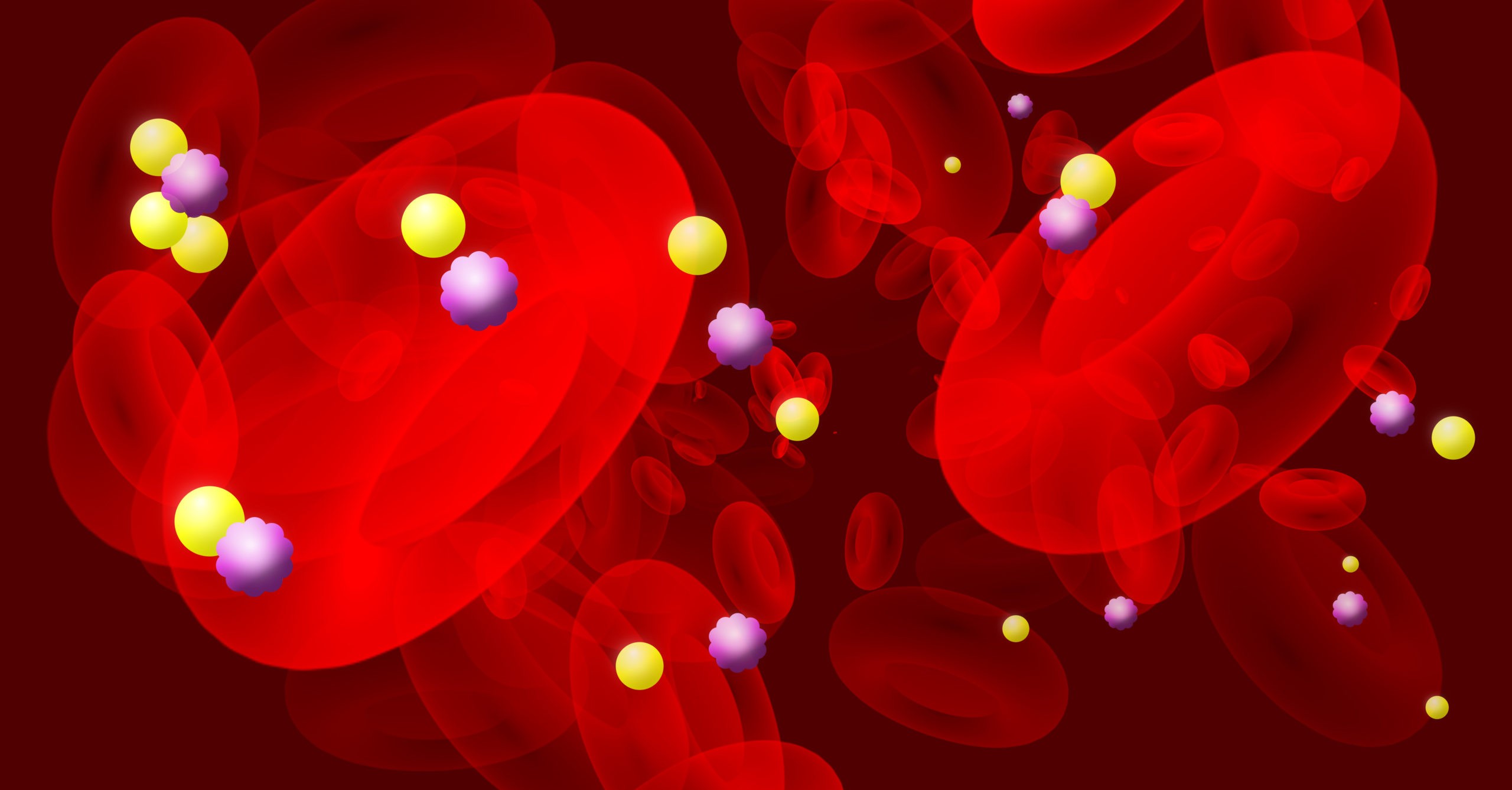
Insulin...Still an Undeserved Bad Reputation After 10 Years
In May of 2010 I published what would be one of the most popular series of articles on my site: Insulin....an Undeserved Bad Reputation.
That article slept around a lot, had little babies, and spawned into a 7-part series (here's parts 2, 3, 4, 5, 6, and 7). And it didn't pick up a single disease along the way, except for some unhappy low carbers in the comments section (note to self...don't ever read the comments section). This was despite being a Wordpress blog post with a lack of protection at the time (fortunately I practice safe internet now).
It would become the #1 most read series on my site. It would be linked to from numerous sites and blog posts and Facebook posts (still waiting for a link from Tik Tok). Yeah, that's no NY Times best seller or even NY Post bestseller but I'm still proud of my internet-promiscuous piece.
It got the attention of numerous big names in the low carb industry. They even had a pow wow about it (the post no longer exists but you can find it on the internet archives here ... hooray for the Wayback Machine which would be way cooler if it looked like a Delorean).

It helped make me much more visible. While I was no invisible man before that, it at least made me somewhat translucent. It helped put me on the fitness world map (which is not made by Rand McNally).
It started my speaking career, leading to an invitation to speak at the 2015 Epic Fitness Summit where I was supposed to debate John Kiefer of Carb Backloading fame. Kiefer infamously didn't show up. He said he missed his flight and there were no other available flights. Maybe try backloading your tickets next time.
Thanks to Kiefer's no-show, I had the full 90 minutes to myself. I got such rave reviews for my presentation that it led to numerous speaking invitations afterwards.
And we still make Kiefer jokes to this day.

Needless to say I owe a lot to that series. Thus, given that it's the 10-year anniversary of the first article of that series, let's take a look back at what's come out the past 10 years.
Does the info from that series still hold up?
It most certainly does. In fact, research that has come out in the past decade has only confirmed what the original article proposed...you don't need to manipulate your insulin levels through changes in your diet to lose body fat. Low carb diets don't work via lowering insulin levels, and the insulinemic effects of carbs are irrelevant to your body composition goals.
Let's take a look at the research that has emerged in the past 10 years which has only further vindicated insulin as an evil hormone that wants to make you fat.
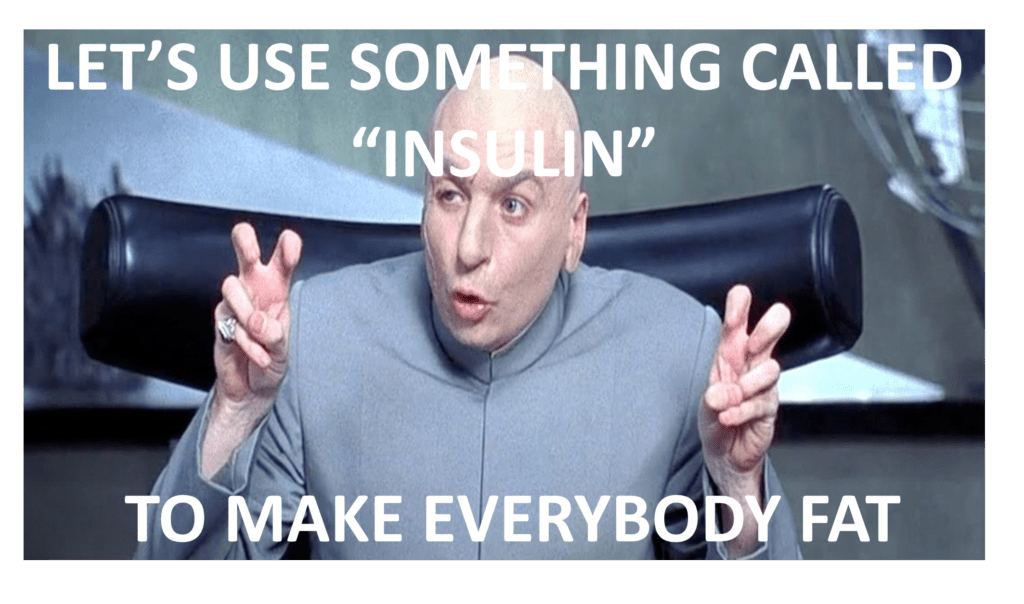
Rodent Ruminations
If carbs really made people fat via insulin, then it's pretty easy to test. Simply manipulate carb levels while keeping calorie and protein intake the same, and then look at what happens to body fat. Since insulin levels will be higher with a high carb intake versus low carb intake, then fat loss should be greater with the low carb intake.
A couple rodent studies have been done in the past few years that did exactly that.
In this study, Dr. Hu (not to be confused with Dr. Who) compared a variety of diets where carbs ranged from 8% to 80% of calories. As you might expect, insulin levels after meals tended to be higher with higher carb intakes.
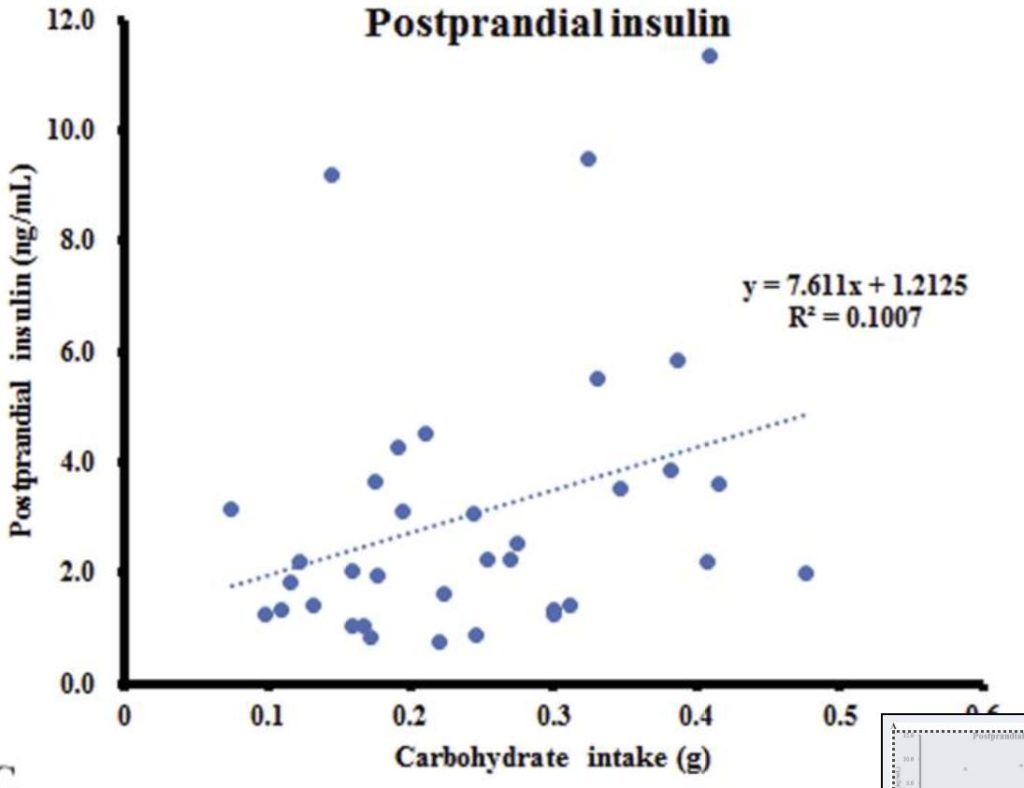
When fat intake was fixed at either 20% or 60% of calories, varying carbohydrate intake had little impact on food intake or physical activity. Body weight, body fat, and lean mass were similar across a range of intakes. In fact, the highest carb content in each condition resulted in the lowest body weight and body fat levels.
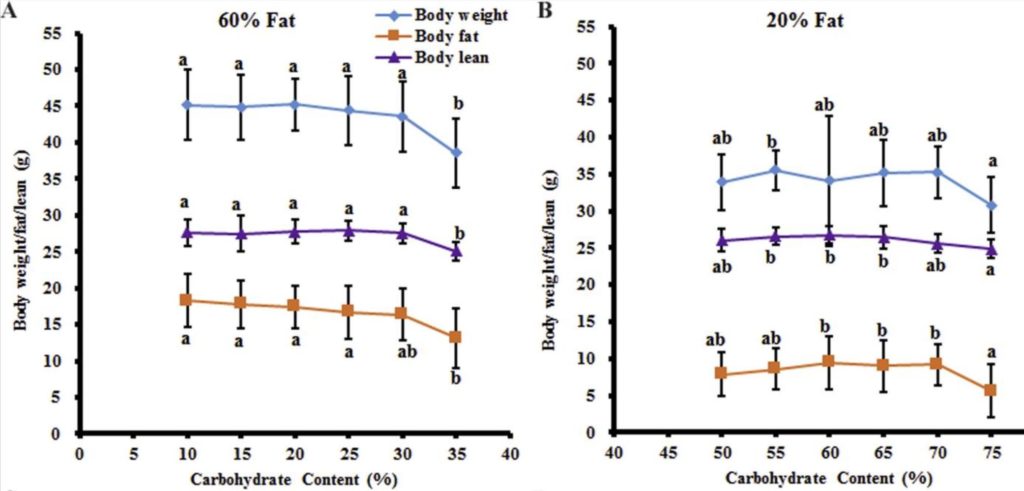
When protein was fixed at either 10% or 25% of calories, again body weight and body fat tended to be similar across a range of carb intakes. At the highest carb intakes, body weight and body fat tended to go down because of a decrease in food intake (energy balance? what a concept!).
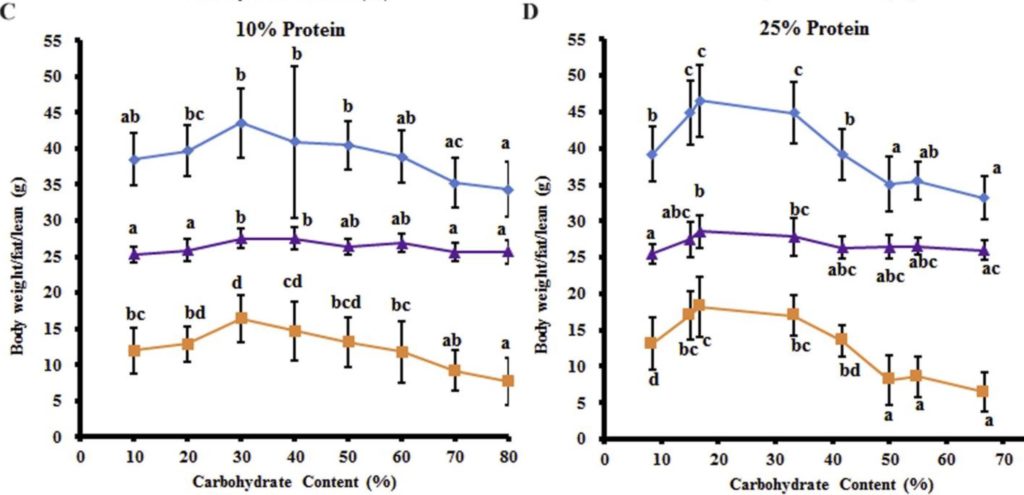
In another study by the same research group, varying carbohydrate intake from 10 to 80% carbohydrate or 5 to 30% sugar did not significantly impact food intake or body composition. Not only does this refute the idea of insulin being a bad guy, but it also refutes the idea that the type of carbs (sugar in this instance) will have some negative impact on body composition independent of calorie intake.
I'll also note that Dr. Hu's group replicated the study in four other mouse strains.
These were some of the most elegant and largest rodent studies done to date on the manipulation of carbs and body composition. Dr. Hu showed that carbs and insulin were vindicated.
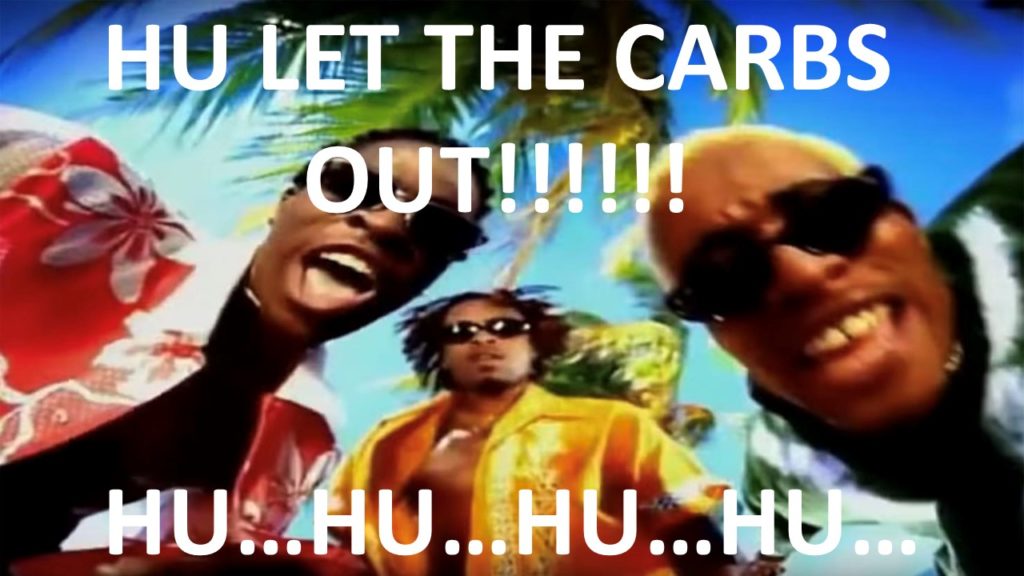
In Mice...
I can hear the chorus now...

This is the common retort when you cite rodent studies.
Now, this is a fair retort most of the time. There are tons of limitations to rodent research, and rodent research sometimes doesn't translate to humans.
However, the concepts of body composition and energy balance apply just as much to rodents as to humans, so examining the impacts of diet on body composition in rodents will translate fairly well to humans. Not only that, but rodents have a greater capacity for de novo lipogenesis (fancy science speak for turning carbs to fat), so if anything, a rodent model would favor low carb more than a human model would. Given that the Hu studies didn't favor low carb, that's pretty strong evidence against the insulin hypothesis of fat gain.
Plus, you have the benefit of much tighter control and measurement of things like food intake in rodents, which is notoriously difficult to do in humans.
In Humans...
OK, let's throw the "in mice" choir a bone and assume the rodent models don't apply.
Fortunately, we've got plenty of human data which supports Dr. Hu's animal models.
First, we've got research by Soenen and colleagues, who compared the impact of different protein and carb combinations on weight and fat loss. Changing the carb intake didn't significantly impact weight or fat loss. It was protein intake that had an impact, with greater weight and fat loss when protein was high versus normal.
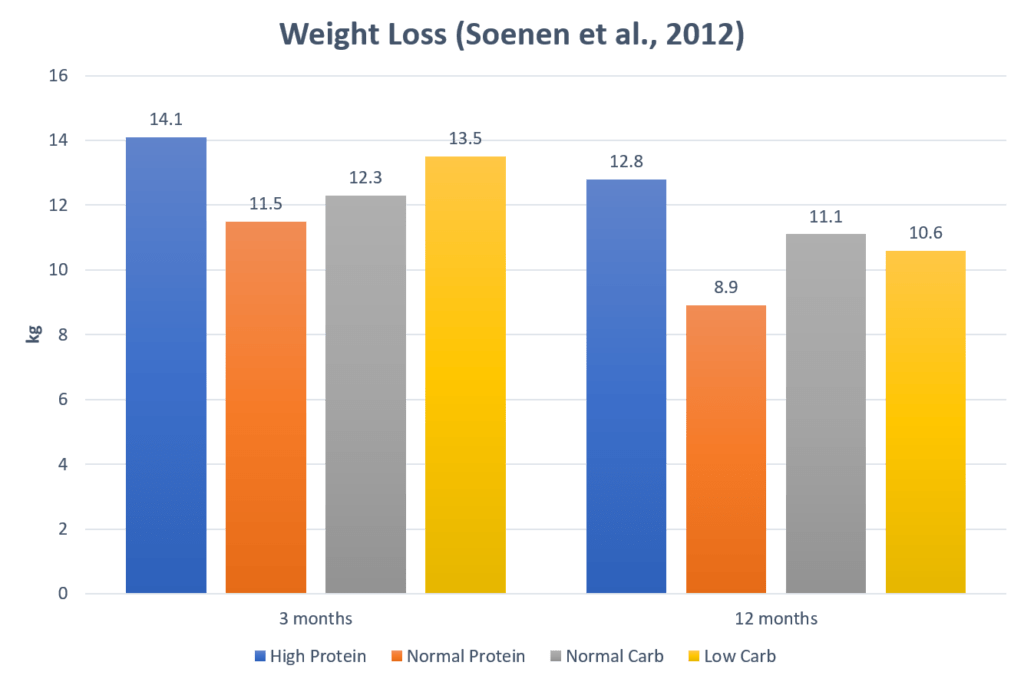
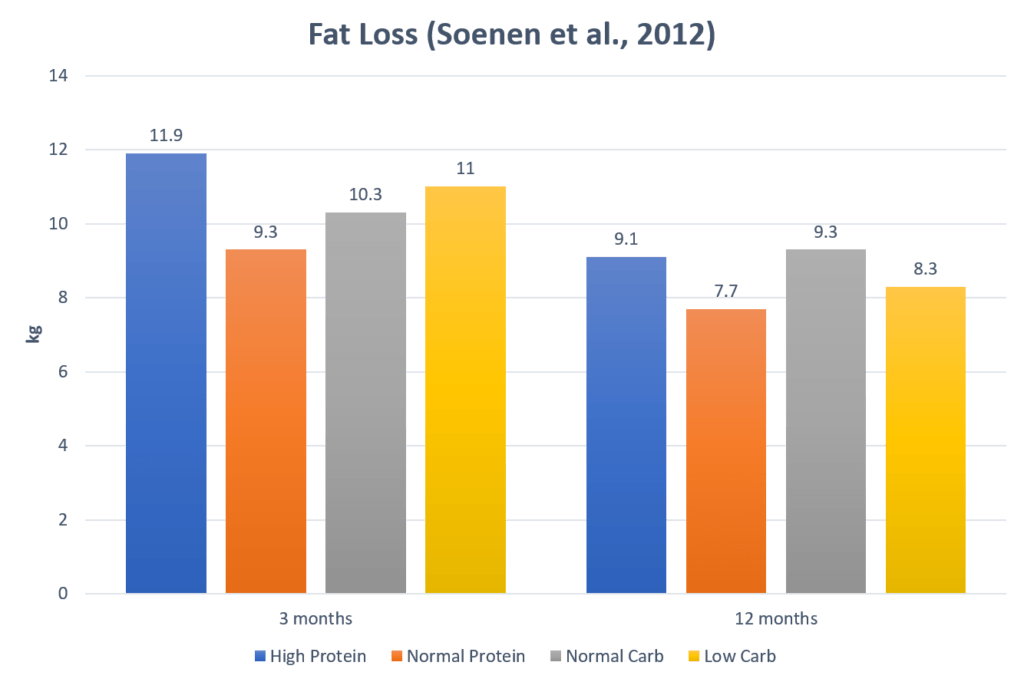
This isn't surprising because it's well known that high protein intake can suppress appetite and cause you to eat less.
This research refutes the idea that you need to manipulate your insulin levels by manipulating carbs in your diet. If it was really about insulin, the lower carb condition should've done better regardless of protein content.
Of course, that was a free-living study where food intake was self-reported and thus not tightly controlled. We can't be sure people are eating what they claim to be eating. Also, if we really want to test the insulin hypothesis, we need to vary carb intake while matching calories and protein, which wasn't done in either the Hu rodent studies (although food intake was fairly similar among most of the carb intake levels) or in the Soenen study.
Enter Kevin Hall...
The Hall of Justice

Kevin Hall and his colleagues performed one of the most tightly controlled metabolic jail, err, I mean ward studies that have ever been performed on low carb diets.
Nineteen adults with obesity were confined to a metabolic ward for two 2-week periods. During one period, they were fed a low carb diet. During the other period, they were fed a high carb, high sugar diet. Calories and protein were matched between the two conditions. All the food intake was meticulously controlled and energy expenditure was accurately measured. The confinement of the subjects allowed for such tight control and measurements...it's like they were practicing for a COVID-19 lockdown.
C-peptide levels, a marker of daily insulin levels, were much higher in the high carb condition.
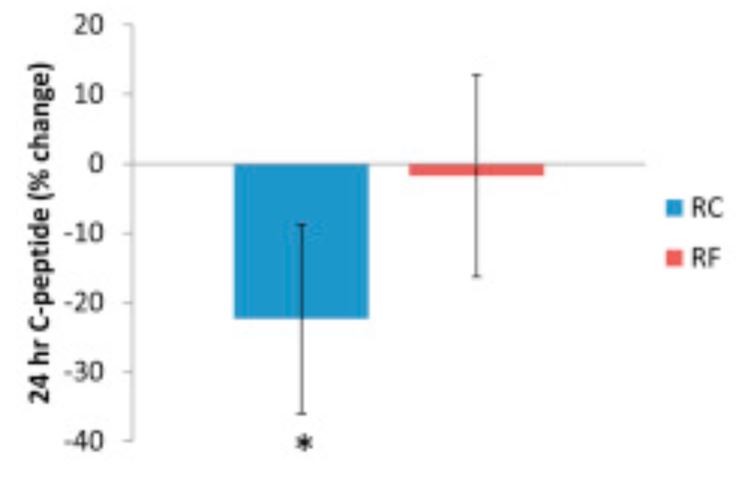
Despite higher insulin levels, the high carb group lost a bit more fat...a direct refutation of the insulin hypothesis. Also, the amount of fat lost was closely in line with the amount that was predicted to be lost via Kevin Hall's body weight models.
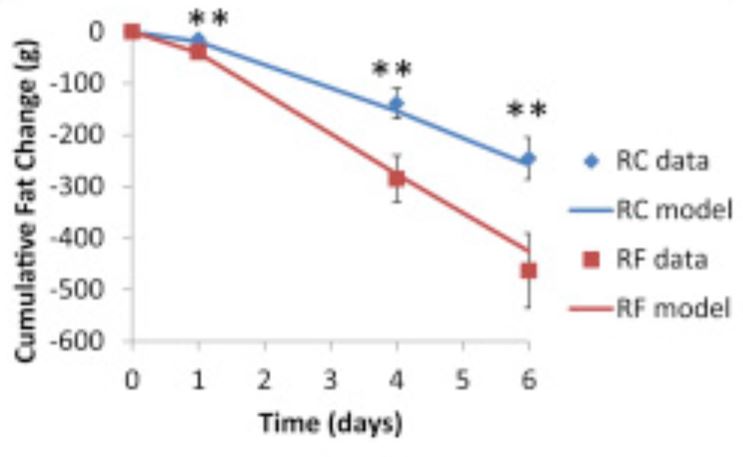
Kevin Hall wasn't done. He and his colleagues (including some top metabolism researchers like Michael Rosenbaum and Eric Ravussin...truly a Justice League of Super Researchers) performed another metabolic ward study where overweight and obese men were put on a high carb diet for 4 weeks, followed by a low carb ketogenic diet for 4 weeks. The diets were matched for protein. Again, this was a very tightly controlled study. The study was even partially funded by Gary Taubes's NuSI organization, and the study design was approved by the same organization.
What happened? Fat loss slowed down for the first 2 weeks when subjects were switched to the low carb diet. Yes, they lost more weight, but that came from a loss of body water and fat-free mass.
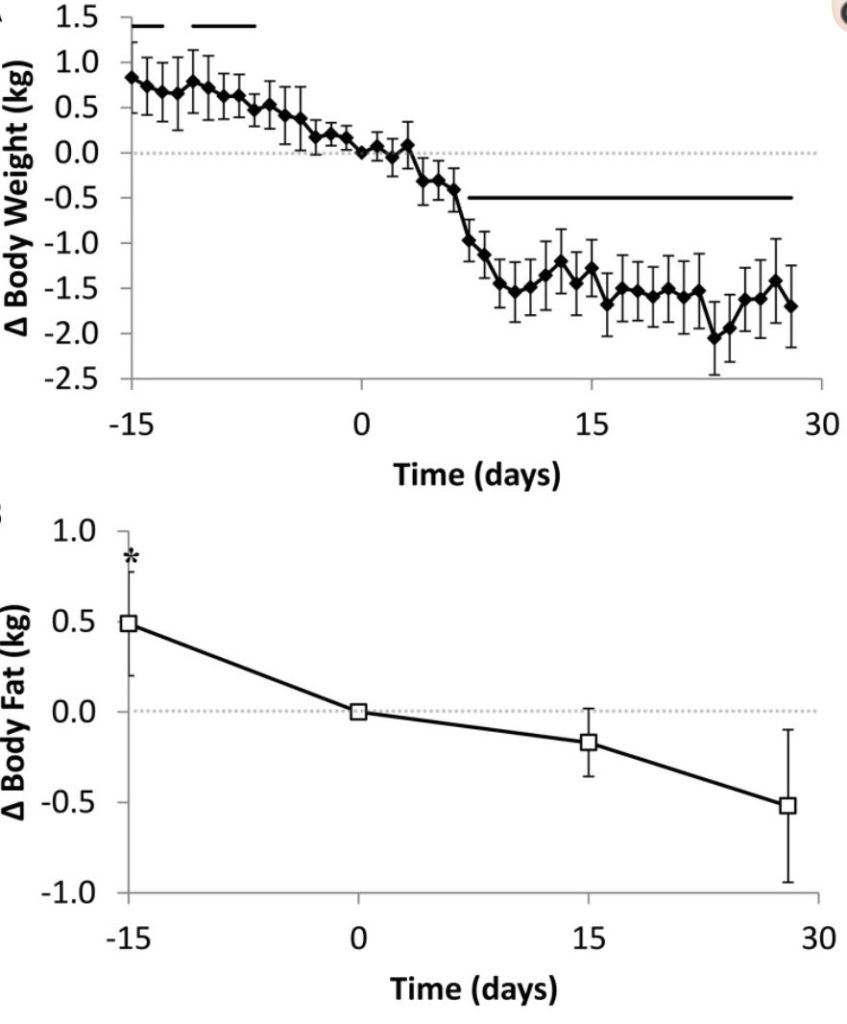
This happened despite lower C-Peptide and insulin levels, again directly refuting the insulin hypothesis.
So what did Gary Taubes do? He turned around and claimed the study was flawed, even though his group approved the study design!
OK, let me see...you approved a study design but then you bitch that the study design is no good when the results don't meet your expectations?
Somebody's gotta tell Gary....

I shouldn't be surprised. At the 2015 Epic Fitness Summit during a Q&A, somebody asked Gary if he would change his mind if Kevin's study came out with results that contradicted his beliefs. He said "No."
Yeah, dude, that's not how science works. Good scientists change their minds when the evidence is overwhelmingly against them.
Insulin Hypothesis Smackdown
Hall wasn't done body slamming the insulin hypothesis.
In a meta-analysis (a "study of studies") that I reviewed here at Weightology, he combined 32 different metabolic ward studies that looked at the impacts of varying carbs and fat. Fat loss was slightly favored in the high carb arms by 16 grams per day, which is right in line with Kevin's two metabolic ward studies.
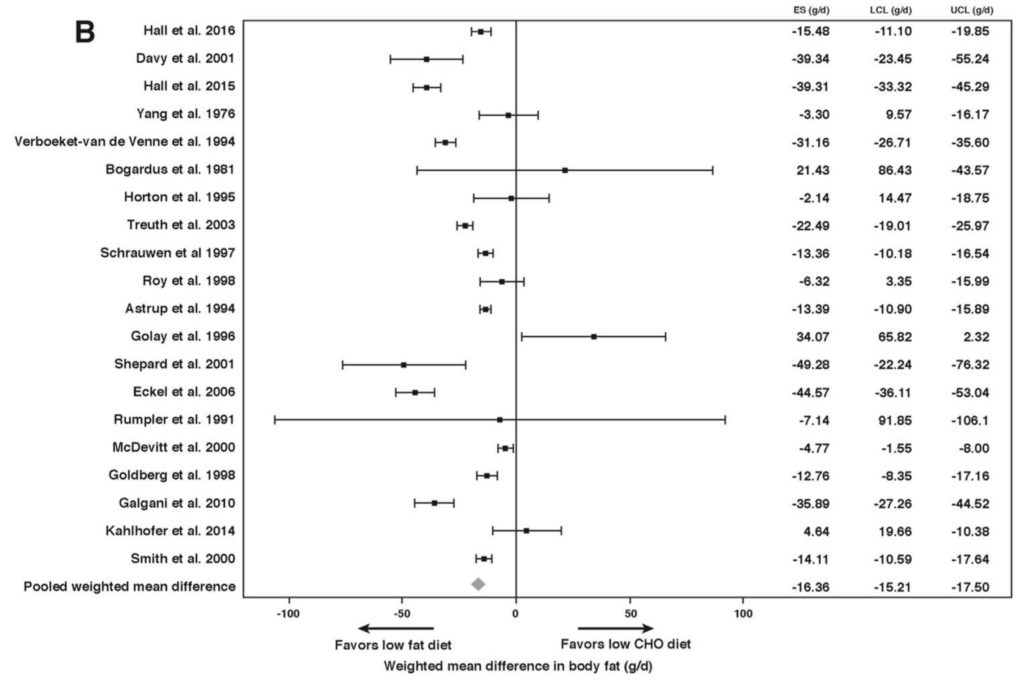
But...But...But...
I can hear the low-carb-loving/keto-consuming/carnivore-crazy/Atkins-adoring/South Beach-salivating/Protein Power-pushing/Taubes-titillating/Ludwig-lusting/Fung-fucking (not to be confused with fun fucking)/zero-carb/negative-carb/bacon-loving/dripping-dipping zealots screaming right now...
But what about Ludwig's studies!!!!!!
Yeah .. about those studies.... they have some serious issues...
You'll have to become a Research Review subscriber to learn more as to why.
That's not to mention that they fly in the face of the overall weight of the evidence from independent research groups. Remember, it's the weight of the evidence that matters here, not the results of any single paper.
But I lost weight on low carb while eating more calories!!!!
Except people are awful at tracking calories.
Yes, that includes you.
And they are equally as bad at tracking energy expenditure. Even scientists can't accurately do that unless they've got you jailed, err, I mean confined to a room or use doubly (not singly or triply)-labeled water.
The Weight of the Evidence
When considering any sort of hypothesis, we must consider the overall weight of the evidence. The weight of the evidence is so strongly against the insulin hypothesis that it breaks the scale. Not only does the insulin hypothesis have the numerous problems that I discussed 10 years ago, but a body of well-controlled animal and human studies have subsequently been published which bury the hypothesis for good.
Happy Anniversary
Ten years later, and insulin remains vindicated.
Happy anniversary, Insulin...an Undeserved Bad Reputation series.
If it wasn't for you, we wouldn't have any Kiefer jokes.
And you wouldn't have "Hu let the carbs out!" stuck in your head.
In the immortal words of Gerald Posner...

I’m curious what kind of carbs were used in the studies…does any researcher ever specifies that? I expect the results would differ depending on whether the subjects were given pretzels and potato chips vs grains and potatoes vs green vegetables.
Yes they do. The types of carbs isn’t as important as you think in regards to insulin release. For example, a baked potato will release more insulin than pure sucrose, despite a baked potato being more satiating and a better nutritional choice.
Gracias por este articulo !
Thanks for this information !